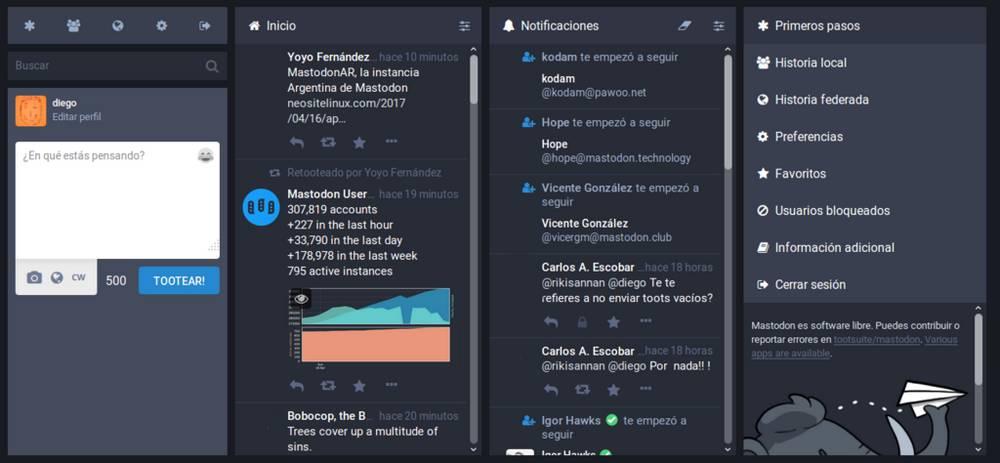Officially, Twitter belongs to Elon Musk. A few days ago, the tycoon took control of the company after a long process of negotiations (and legal problems), and the first thing he did was kick out the entire administrative leadership to take full control of the company as CEO. And the first changes have not taken long to appear, changes that many users are not liking too much and that have given rise to a concept that is having a greater impact within this social network: Mastodon. But what is this, and why does Elon Musk not like to talk about it?
Many curves come to Twitter. Among Elon Musk’s plans is a complete facelift of the social network, eliminating hate and trolling and making the social network a much more friendly and pleasant place. In addition, there are also new monetization plans, starting with a monthly fee (between 8 and 20 euros per month) for those who want to see less advertising, have more visibility and a verified account.
All this can make Twitter recover the lost trust of many users, but it will also make all those who liked the social network as it was until now, start looking for other platforms to hang out. And this is where Mastodon comes into play.
What is Mastodon?
Mastodon was born as a microblogging platform in 2016, very similar in every way to Twitter. In a very short time, this social network began to gain popularity, going from 50 instances, in 2017, to thousands of them connected to each other today.

As we can see, in looks and functions, it is very similar to its rival. The main characteristics that differentiate this social network from Twitter are:
- It is a distributed network. That is, it does not have a central server, but is based on a network of servers, created and maintained by volunteer users. In this way, it is very difficult to close or block it.
- Users are spread out in what is known as “fediverse”, that is, across different independent Mastodon instances.
- Messages, or “toots,” are up to 500 characters long.
- Freedom of expression prevails, always with respect. Instances are controlled by administrators (usually creators) with the help of a few independent moderators. To avoid cultural conflicts, interaction with other instances is usually controlled. In addition, toxic, offensive or Nazi-related content is generally prohibited
- It is completely free and open source. It has no ads, no paid features, no nothing.
Whenever there has been any change related to Twitter, users have begun to migrate en masse to this other social network. Or, at least, they have tried to give it a new opportunity, since almost always everyone ended up coming back. Although, this may change with the new era of Elon Musk.
Is the reign of Twitter in danger?
In short, no. Twitter is a giant, popular, easy to use and, after all, where most people are. That is why, although it is true that Mastodon is gaining users, most of them, in the end, end up returning to Twitter, since that is where the content that interests them is found.
Of course, the massive migration of real users (we remember that one of Twitter’s problems, and the one that Elon Musk is going to end up with, are the bots), is a problem. If in the end there is a mass exodus of users, and many interesting communities are created, it may be possible to look him in the eye. But, today, it is complicated, and for the new CEO it is not a concern, although he does not take his eyes off him.
If you want to give this social network a chance, you can enter it from this link. Who knows, it may become your new Twitter.












